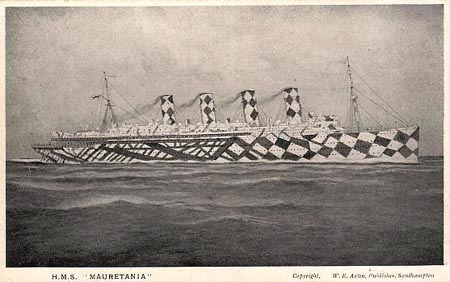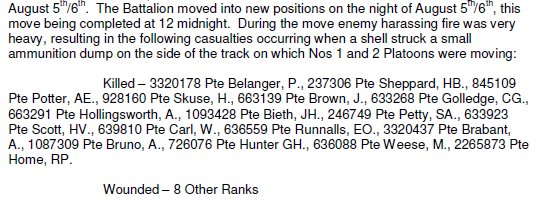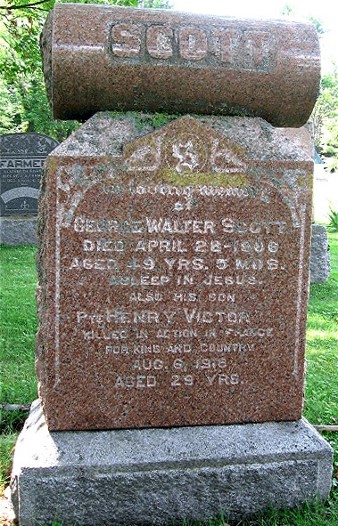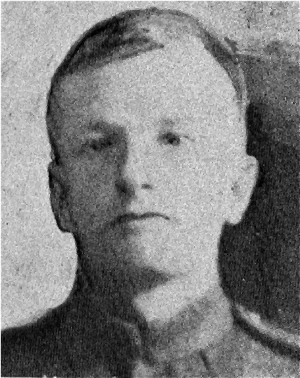|
Nov 10, 1890
|
Born in Ottawa, Ontario to George Walter and
Margaret (nee McIntominey) Scott
|
|
Feb 26, 1916
|
Attested into the 154th Battalion CEF
in Cornwall, Ontario
Ø Number 633923
Ø Next of kin given as Mrs.
Margaret Scott, mother, 10 Arthur St., Eastview, Ontario
Ø Previous occupation given as
Labourer
Ø Previous military experience
given as 3 years with the 43rd Regiment DCOR (Duke of Cornwall’s
Own Rifles), in Ottawa
Ø Religion given as Presbyterian
The battalion trained in the Barriefield Camp,
Kingston, Ontario
|
|
Mar 2, 1916
|
Admitted to the Cornwall Hospital with a
diagnosis that reads Hernia. Surgery
was performed to repair the Hernia
|
|
Mar 28, 1916
|
Discharged to duty from hospital
|
|
Oct 25, 1916
|
Embarked the SS Mauretania in Halifax, Nova
Scotia

|
|
Oct 31, 1916
|
Disembarked in Liverpool, England and the
battalion proceeded to Bramshott to continue training
|
|
Jan 31, 1917
|
Transferred to the newly formed 6th
Reserve Battalion in the East Sandling camp.
Shortly after the formation of the battalion, it was moved to
Shorncliffe to train reinforcements for the front
|
|
Apr 21, 1917
|
Transferred to the 21st Battalion
|
|
Apr 22, 1917
|
Arrived at the CBD (Canadian Base Depot) in the
Rouelles Camp, Havre, France as part of a draft of 3,000 reinforcements from
England and TOS (Taken On Strength) the 21st Battalion
|
|
Apr 26, 1917
|
Admitted to the No. 7 Canadian Stationary
Hospital in Harfleur with a diagnosis that reads Accidental Sprained Ankle
At an inquiry regarding the accident, Private
Scott testified “at 11 am April 26th, 1917, while on duty at the
Central Training Camp, I jumped into a trench and my right foot turned under
me, giving me the sprain.” This was
confirmed by a witness, Pte. E. Sharp
|
|
May 3, 1917
|
Discharged to duty at the base depot from
hospital
|
|
May 11, 1917
|
After leaving the base depot he joined the 2nd
Canadian Entrenching Battalion in Hersin, France as part of a draft of 34
Other Ranks destined to join the 21st Battalion
|
|
Jun 17, 1917
|
After leaving the entrenching battalion Private
Scott joined the 21st Battalion in billets in Coupigny, France and
assigned to “A” Company
|
|
Aug 3, 1917
|
Admitted to the No. 4 CFA (Canadian Field
Ambulance) with a diagnosis that reads Influenza
|
|
Aug 5, 1917
|
Transferred to the No. 5 CFA
|
|
Aug 7, 1917
|
Discharged to duty from hospital
|
|
Sep 11, 1917
|
Attached to the 4th CTMB (Canadian
Trench Mortar Battery) for duty
|
|
Oct 13, 1917
|
Ceased to be attached and rejoined the 21st
Battalion resting in the Suburban Camp, near Villers au Bois
|
|
Feb 6, 1918
|
Granted 14 days leave
|
|
Feb 21, 1918
|
Rejoined the battalion from leave
|
|
Feb 26, 1918
|
Awarded the Good Conduct Badge
|
|
Aug 6, 1918
|
While moving into positions closer to the front
in preparation for the attack on Marcelcave, France, his company was passing
by an ammunition dump near the roadway when an artillery shell landed in the
middle of the dump causing a very large explosion that killed Private Scott
and 18 other men, in addition to causing a large number of casualties.
Private Henry Victor Scott was buried a short
time later in the Longueau British Cemetery, south east of Amiens.
|
|
From the 21st
Battalion’s War Diary

|
|
|
Following the war, the British War Medal, Victory
Medal, Plaque (Dead Man’s Penny), Scroll and Memorial Cross were sent to his
mother, Mrs. Margaret A. Scott, 221 Kent St., Ottawa, Ontario
|
|
From the Ottawa
Journal, August 20, 1918

Private Henry Victor Scott is also remembered in the family grave
in Ramsyville, Ontario

|
|

